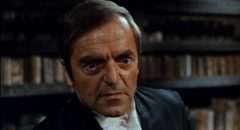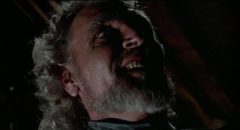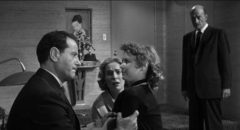
Recent revelations about Richard Stanley complicate my relationship with his work. As a longtime fan, it’s deeply troubling to learn that he’s been a violent abuser of women for many years…

Criterion’s new release showcases Jacques Rivette’s most playful feature, Celine and Julie Go Boating (1974), with a terrific transfer and exhaustive (and exhausting!) supplements, including a an illuminating commentary by Adrian Martin and a second disk containing four-and-a-half hours of documentaries and interviews.

Bingeing has been my default viewing mode for some time, but it’s only more recently that it’s come to encompass indulging in multiple releases by a particular company – which in turn is a result of those company’s offering regular sales and discount packages of monthly releases. The most prominent examples of this are Vinegar Syndrome and Severin Films, both of which specialize in genre and exploitation titles, pulling me into deep, often sordid, black holes.

Bingeing has been my default viewing mode for some time, but it’s only more recently that it’s come to encompass indulging in multiple releases by a particular company – which in turn is a result of those company’s offering regular sales and discount packages of monthly releases. The most prominent examples of this are Vinegar Syndrome and Severin Films, both of which specialize in genre and exploitation titles, pulling me into deep, often sordid, black holes.

Recent releases from Eureka/Masters of Cinema showcase a range of Chinese martial arts movies, from Sammo Hung’s traditional The Iron-Fisted Monk (1977) to Tsui Hark’s genre redefining Once Upon a Time in China trilogy (1991-92) to Ricky Lau’s horror-comedy Mr. Vampire (1985) and Ronny Yu’s visually ravishing fantasy The Bride With White Hair (1993).

Indicator have done their usually exemplary job with a pair of recent box sets – one devoted to the five Fu Manchu movies written and produced by Harry Alan Towers in the late 1960s, all starring Christopher Lee in racial drag; the other showcasing six films from Columbia Pictures rather loosely gathered together and labelled film noir.

Known as the “father of African cinema”, Ousmane Sembène’s films grapple with issues of identity in the complex social and political conditions of post-colonial Africa. His second feature (and first in colour) Mandabi (1968) is a tragi-comedy about a proud man clinging to an outmoded patriarchal role whose life is upended when a nephew working in France sends him a money order for 25,000 francs.